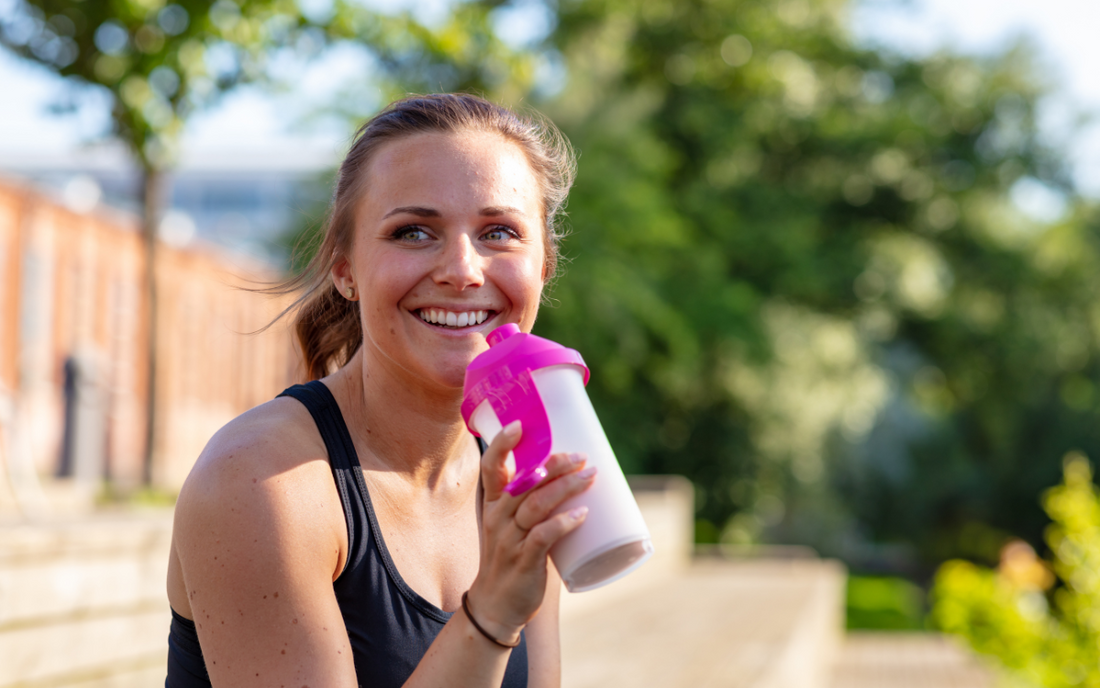
5 tips for better distributing protein throughout the day
When we talk about protein, we often think of the recommended daily amount or the most popular sources like meat or fish. However, the distribution of protein throughout the day is just as important. A balanced intake helps optimize the absorption of amino acids, better preserve muscle mass and avoid cravings. Whether you are an athlete or simply concerned about your health, managing your protein intake can make all the difference. Discover five practical tips for better distributing your protein intake on a daily basis.
The importance of protein in our diet
A quick reminder: proteins play an essential role in our bodies. They are composed of amino acids, which are involved in growth, tissue repair, and many biological functions. Contrary to popular belief, proteins are not just for bodybuilders or weight training enthusiasts. They are necessary for everyone, regardless of their level of physical activity, because they help maintain healthy muscles, bones, and the immune system.
Whether you are looking to promote muscle gain, prevent muscle loss or simply optimize your daily energy, a good protein balance is essential. Quality protein sources, such as meat, fish, eggs, dairy products or whey and Pulse vegan protein powders, are essential to ensure intakes adapted to each need. Good nutrition also involves a balance between proteins, carbohydrates and fibers in order to guarantee a healthy and complete diet.
Finally, a balanced diet is not only based on the total amount of protein consumed, but also on the variety of sources and the presence of essential amino acids. The latter are essential for maintaining muscle mass, tissue repair and recovery after training. To optimize their assimilation, it is recommended to adjust protein intake according to the body's individual needs, making sure to distribute them throughout the day. This not only contributes to muscle preservation, but also to better energy management and satiety.
1. Aim for optimal intake per meal
The human body has a limited ability to efficiently utilize excess protein consumed in a single meal. Therefore, it is best to aim for 25 to 30 grams of protein per meal. Here are some examples of balanced meals:
- Protein smoothie with 1 serving of Pulse vanilla powder, 1/2 banana, 1 small cup of berries and 1 tbsp of Pulse protein peanut butter.
- Greek yogurt with fruit, nuts and Pulse protein granola.
- Wholemeal bread with Pulse protein almond puree and a glass of milk.
Don't forget to add fiber to your meals to improve digestion and help your body better absorb nutrients. Indeed, the balance between proteins, carbohydrates and fiber is a key element of effective nutrition.
2. Adjust protein intake to your personal needs
Each individual has different protein needs depending on their weight, gender and level of physical activity. A simple estimate is to consume between 1.2 and 1.6 g of protein per kilogram of body weight .
Example: A 70 kg person with moderate physical activity should aim for around 105 g of protein per day (70 kg x 1.5 g).
Protein-rich foods include eggs, meat, fish, dairy, and plant-based sources like legumes and nuts. Whey or vegan Pulse protein powders are also a great supplement to ensure optimal intake throughout the day. It is also important to distribute your calorie intake well to avoid dietary imbalances.
A good distribution of proteins in the diet helps maximize their effect on health, in particular by facilitating muscle recovery and limiting the loss of lean mass.
3. Apply the 30-30-30 rule
In Western dietary culture, protein consumption is often poorly distributed: low at breakfast, moderate at lunch, and excessive at dinner. A better approach is to distribute the intake in a balanced way (30 g morning, 30 g noon, 30 g evening).
This helps manage appetite, preserves muscle mass and improves physical performance and digestion. A good distribution of macronutrients (protein, carbohydrates, fiber) is also essential to optimize the results of a workout.
4. Include more protein in breakfast
A high-protein breakfast helps stabilize energy, prevent blood sugar spikes, and stave off morning cravings. Here are some ideas to boost your morning with protein:
- Choco-coffee smoothie with Pulse chocolate protein powder.
- Chia pudding with almond milk and Pulse protein granola.
- Vegetable omelette with wholemeal bread.
This meal should contain a good amount of protein, but also carbohydrates and fiber for prolonged energy throughout the day.
5. Don’t forget protein snacks
Snacks aren't essential, but they can be helpful to avoid energy dips between meals and to avoid raiding your cupboards when you get home in the evening. Go for snacks that provide at least 10g of protein, such as:
- A bowl of cottage cheese with red fruits and a little Pulse protein granola.
- A Pulse protein bar.
- Apple slices to dip in Pulse almond puree.
Unlike the usual high-carb snacks, snacks should not only contain carbohydrates, they should provide you with protein and fiber to ensure better satiety without excess calories.
Some examples of balanced and protein-rich eating days
Flexitarian version
- Breakfast: vegetable omelette with wholemeal bread and avocado.
- Snack: cottage cheese with almonds and red fruits.
- Lunch: salmon fillet with quinoa and roasted vegetables.
- Snack: a Pulse protein bar.
- Dinner: Chicken, roasted sweet potatoes and green salad.
Vegan version
- Breakfast: Protein smoothie with almond milk, banana, chia seeds and Pulse vanilla plant-based protein powder.
- Snack: Pulse protein granola with plant-based skyr.
- Lunch: quinoa salad, chickpeas, avocado and crunchy vegetables.
- Snack: Pulse peanut butter on apple slices.
- Dinner: lentil and vegetable curry with brown rice.
Conclusion
Spreading your protein throughout the day helps optimize amino acid absorption, maintain satiety, and avoid cravings. By following these simple tips and incorporating foods rich in quality protein, you can easily reach your nutritional goals without stress. Make sure to balance your protein, carbohydrate, and fiber intake for better energy management, and use Pulse products to help maintain these goals. A good diet combined with adequate protein consumption contributes to better health and proper body function.
FAQ
Why is it important to distribute protein throughout the day?
A good distribution of proteins helps improve satiety, maintain muscle mass and avoid fatigue.
How much protein should I eat per day?
It depends on your weight and physical activity, but an average of 1.2 to 1.6 g per kg of body weight is recommended.
What protein-rich foods can I easily incorporate?
Greek yogurt, eggs, fish, meat, dairy products, as well as whey shakes and vegan Pulse protein powders are excellent sources of protein that are easy to incorporate into the diet.




